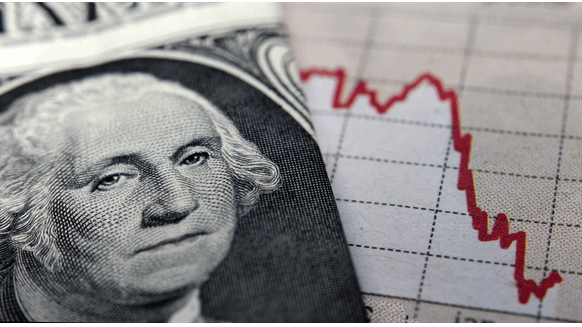What Does a 2023 USA Recession Mean for Oil and Gas in the Country?

Economic slowdown in the U.S. will impact oil and gas consumption and weigh on benchmark oil and gas prices, adversely impacting upstream activity, Dominika Rzechorzek, a Senior Oil and Gas Analyst at BMI, told Rigzone.
Rzechorzek said the company currently expects the U.S. to experience a modest recession over the second half (H2) of 2023 but noted that the annual real GDP growth rate is set at one percent year on year “given reasonably solid economic activity over H1 2023”.
“Hence, we see total fuel consumption to decline only marginally, by 0.5 percent year on year,” Rzechorzek said.
“The impact on particular fuels is set to vary with motor gasoline and middle distillate demand shrinking by respectively 1.0 percent and 2.0 percent, while jet fuel consumption continu[es] growth of 1.2 percent year on year,” the analyst added.
“Natural gas consumption will also see a decline of 0.3 percent year on year, most likely driven by lower demand from the industrial consumers,” Rzechorzek continued.
Should there be a more severe recession over H2 2023, the BMI analyst outlined that the company would expect fuel and gas consumption, especially from industrial and power users, to decline more rapidly.
“A weakening outlook for oil and gas demand in the U.S. is a key bearish factor for oil and gas prices,” Rzechorzek stated.
“Lower oil and gas price environment would erode investor sentiment across the U.S. upstream market, further weakening drilling activity and adversely impacting oil and gas production growth over the medium-term,” the analyst added.
Dan Kish, a distinguished senior fellow at the Institute for Energy Research (IER), told Rigzone that a 2023 recession would be bad for the oil and gas industry “and, obviously, for Americans in general”.
“Coming at a time when over 125 Biden administration anti-energy actions are beginning to kick in, it will be harder to produce in the U.S. than in other countries,” Kish added.
“It would also reset the table for American energy dominance, because additional taxes and indirect taxes through federal regulations would make it harder for U.S. producers to turn things around if a recovery were to come,” he continued.
“With the world already undersupplied with energy, it would allow countries for whom oil and gas is important to their governments to gain market share. It took a long period for the U.S. to reach its place as the world’s premier producer. It would not take so long to destroy that,” Kish went on to state.
Rigzone has asked the U.S. Department of Energy (DOE) for comment on Rzechorzek and Kish’s statements. At the time of writing, the DOE has not yet responded to Rigzone’s request.
To contact the author, email andreas.exarheas@rigzone.com
What do you think? We’d love to hear from you, join the conversation on the
Rigzone Energy Network.
The Rigzone Energy Network is a new social experience created for you and all energy professionals to Speak Up about our industry, share knowledge, connect with peers and industry insiders and engage in a professional community that will empower your career in energy.
- USA Regional Banks Dramatically Step Up Loans to Oil and Gas
- Oil Markets Were Already Positioned for Iran Attack
- An Already Bad Situation in the Red Sea Just Got Worse
- Valeura Makes Three Oil Discoveries Offshore Thailand
- EU Offers $900MM in Funding for Energy Infrastructure Projects
- Chile's ENAP Says Working on Decarbonization Plan
- Germany to Provide $2.3B Aid for Decarbonization of Industrial Sectors
- Mexico Presidential Frontrunner Plans to Spend Billions on RE, Gas Power
- North America Breaks Rig Loss Streak
- Macquarie Strategists Warn of Large Oil Price Correction
- JPMorgan CEO Says LNG Projects Delayed Mainly for Political Reasons
- USA, Venezuela Secretly Meet in Mexico as Oil Sanctions Deadline Nears
- EIA Ups Brent Oil Price Forecast for 2024 and 2025
- Petrobras Discovers Oil in Potiguar Basin
- EIR Says Oil Demand Will Not Peak Before 2030
- Biden Plans Sweeping Effort to Block Arctic Oil Drilling
- Pantheon Upgrades Kodiak Estimates to 1.2 Billion Barrels
- Dryad Flags Red Sea 'Electronic Warfare' Alert
- Russian Oil Is Once Again Trading Far Above the G-7 Price Cap Everywhere
- Oil and Gas Executives Predict WTI Oil Price
- New China Climate Chief Says Fossil Fuels Must Keep a Role
- Chinese Mega Company Makes Another Major Oilfield Discovery
- Oil and Gas Execs Reveal Where They See Henry Hub Price Heading
- Equinor Makes Discovery in North Sea
- ExxonMobil Racks Up Discoveries in Guyana Block Eyed by Chevron
- Macquarie Strategists Warn of Large Oil Price Correction
- DOI Announces Proposal for Second GOM Offshore Wind Auction
- Standard Chartered Reiterates $94 Brent Call
- Chevron, Hess Confident Embattled Merger Will Close Mid-2024


